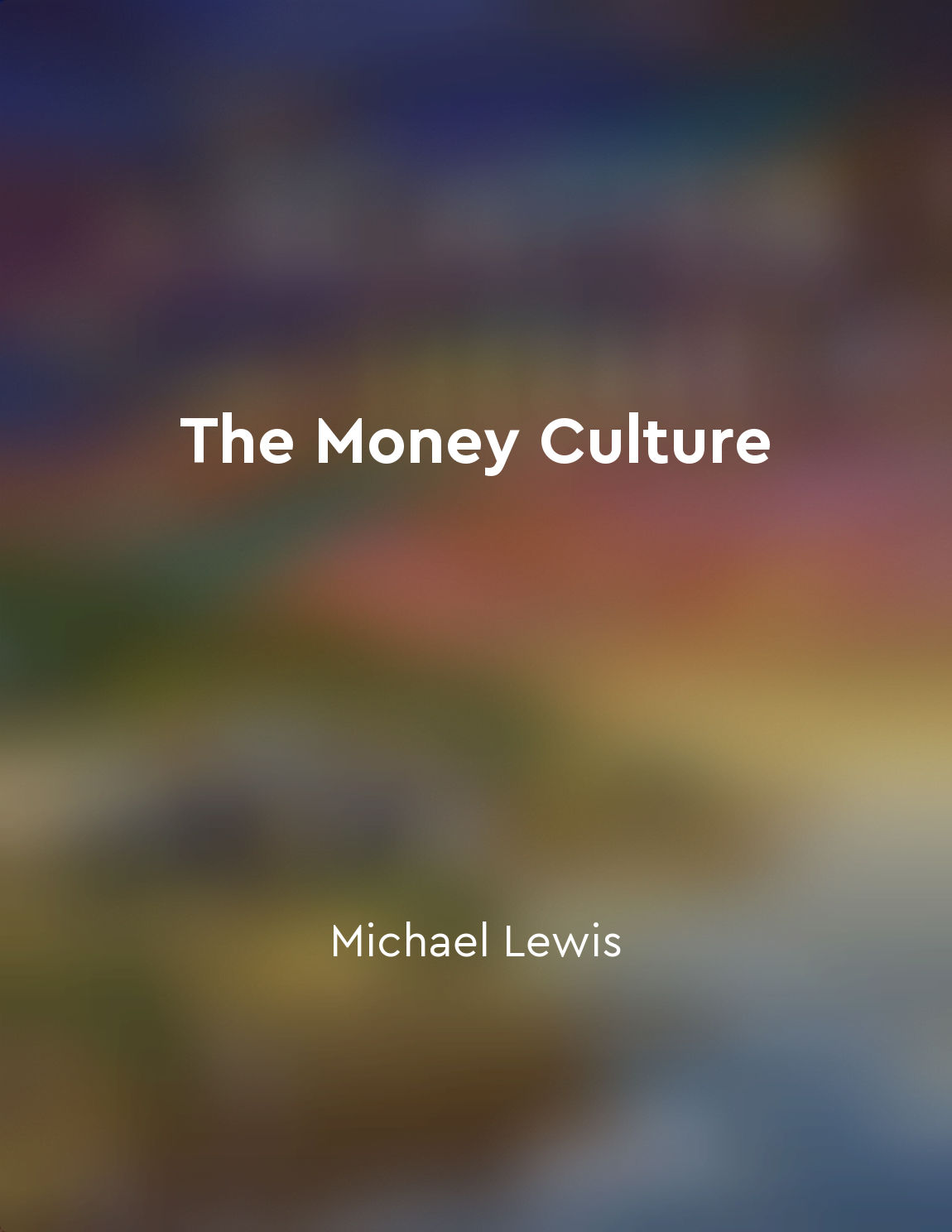Financialization distorts economy from "summary" of The Money Culture by Michael Lewis
Financialization is the process by which financial markets, financial institutions, and financial elites gain greater influence over economic policy and economic outcomes. It is a deeply ingrained trend in modern capitalism that has far-reaching implications for the overall health and stability of the economy. As financial markets become more dominant, they tend to prioritize short-term profits over long-term sustainability, leading to a distortion in economic priorities and decision-making. One of the key ways in which financialization distorts the economy is by incentivizing risky and speculative behavior among corporations and individuals. When financial markets place a premium on quick profits and high returns, businesses may prioritize activities such as stock buybacks and financial engineering over productive investments in research and development or worker training. This can lead to a misallocation of resources and a lack of investment in the real economy, ultimately undermining long-term growth and stability. Furthermore, financialization tends to exacerbate income inequality by rewarding those who have the financial means to participate in speculative markets while leaving behind those who rely on wages and traditional forms of saving and investment. As financial elites accumulate more wealth and power, they are able to influence economic policy in ways that further entrench their advantage, leading to a vicious cycle of increasing inequality and financial instability. In addition, the focus on short-term profits and financial engineering can create a false sense of prosperity that masks underlying vulnerabilities in the economy. Financial markets may become detached from the real economy, leading to asset bubbles, excessive risk-taking, and eventual financial crises. When these bubbles burst, the effects can be devastating for the broader economy, as seen in the global financial crisis of 2008.- Financialization has profound implications for the functioning of the economy, as it distorts incentives, exacerbates inequality, and creates systemic risks that can jeopardize the well-being of society as a whole. Addressing these challenges requires a fundamental rethinking of the role of finance in the economy and a renewed focus on promoting sustainable and inclusive growth for the benefit of all.
Similar Posts

Lack of accountability breeds misconduct
The idea that no one is responsible for anything is a dangerous one. It creates an environment where anything goes, where indiv...
A few foresighted individuals bet against the market
In a world where everyone seemed to be betting on the market to keep rising, a small group of individuals had a different idea....
The Lightning Network enables fast and cheap transactions on top of the Bitcoin blockchain
The Lightning Network is a second-layer protocol that operates on top of the Bitcoin blockchain. It aims to address the issue o...
Prosperity
The idea of prosperity that pervades the American consciousness is one of boundless opportunity and endless growth. It is a bel...
Limitations of shortform communication
Shortform communication, while efficient in conveying information quickly and succinctly, comes with its own set of limitations...

The aftermath of the crisis devastated countless lives
The financial crisis left a trail of destruction in its wake, wreaking havoc on the lives of many unsuspecting individuals. Fam...
Stock prices plummeted rapidly
Stock prices plummeted rapidly. The decline was rapid and severe. Investors watched in disbelief as the numbers on the ticker t...
Not all billionaires are selfmade
This idea that all billionaires are self-made is a myth perpetuated by the media and popular culture. The reality is that many ...
Labor markets adapt to financialization
Labor markets are not immune to the forces of financialization that have swept through the global economy in recent decades. As...
Investors faced severe losses
Investors faced severe losses. The decline of stock values was relentless. Those who had bought on margin were in an especially...

